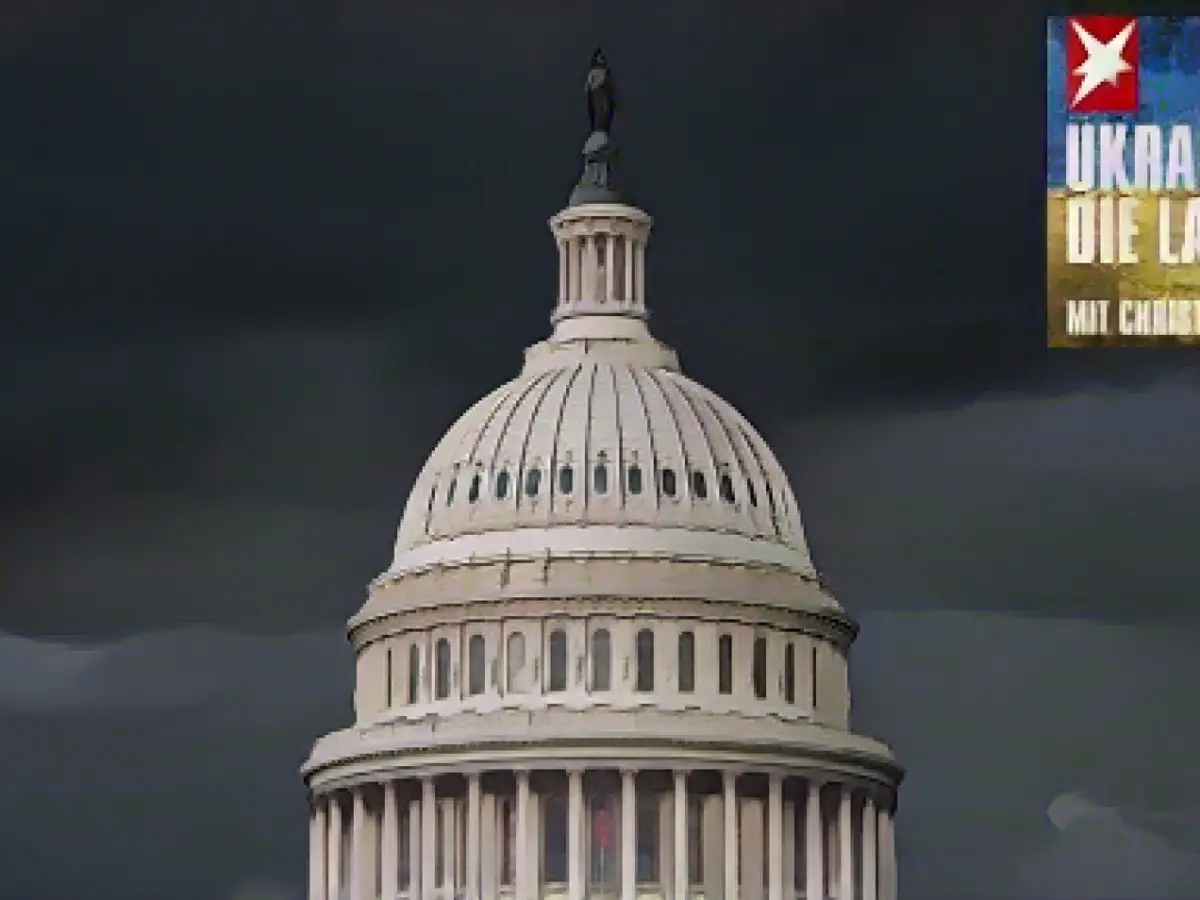Podcast "Ukraine - the situation" - "At some point it will end": Mölling not very optimistic about future Ukraine aid from the USA
Ahead of Ukrainian President Volodymyr Selensky's talks in Washington, security expert Christian Mölling has expressed little optimism about future support for the defensive war against Russia. Mölling said on Tuesday in the stern podcast"Ukraine - the situation": "It all gives little hope right now." He was referring to the bitter disputes in the US Congress over the release of further funds for Ukraine. The Republicans are making this dependent on concessions on migration policy.
Mölling expected that US President Joe Biden would have to make concessions to his domestic political opponents. "Biden will have to pay a price for this," said the Research Director of the German Council on Foreign Relations. If the President were to try to raise money for Ukraine without the approval of Congress, this would be "doubly bad" for him - he would then not only have to be accused of supporting Ukraine during the election campaign, but also of bypassing parliament. "Domestic policy trumps foreign and security policy time and time again," said Mölling. "That's the nature of democracy." Even if the decision is difficult, he therefore advises Biden to compromise. "I think he should do it," said Mölling.
Mölling appeals to Europeans to be better prepared
The expert also warned the Europeans not to reduce their own efforts if American aid is continued. "Then the Europeans will lie down again," he predicted in the event of an agreement in the US Congress. According to Mölling's assessment, however, US support is finite - regardless of the immediate decisions to be made. "It will end at some point," he emphasized. Nevertheless, even after almost two years of war, countries like Germany are completely inadequately prepared for the challenges ahead. "Muddling through is being elevated to the status of politics in all areas," he criticized. "This is also a signal to Moscow."
Mölling referred to the problems of the European Union in acting together if even one member refuses to do so. In connection with Hungarian Prime Minister Victor Orban's blockade stance against aid for Ukraine and accession talks with the country, he spoke of "blackmail".
Read also:
- Year of climate records: extreme is the new normal
- Precautionary arrests show Islamist terror threat
- SPD rules out budget resolution before the end of the year
- Numerous oil, gas and coal lobbyists at climate conference
- Christian Mölling, the Research Director of the German Council on Foreign Relations, believed that US President Joe Biden would need to make compromises on migration policy to secure further funds for Ukraine from the US Congress.
- Mölling expressed concerns about the future of Ukraine's defensive war against Russia, suggesting that American aid is finite and could end at some point.
- In response to potential American concessions, Republicans in the US Congress have made further funding for Ukraine contingent on migration policy changes, a stance that Mölling finds problematic.
- The expert advocated for Germany and other European countries to be better prepared and not rely solely on American aid, highlighting the need for Europeans to take responsibility for their own security.
- According to Mölling, the European Union struggles to act cohesively when one member state, such as Hungary's Victor Orban, refuses to support actions like aiding Ukraine or granting it accession talks, a situation he labels as "blackmail."
Source: www.stern.de








